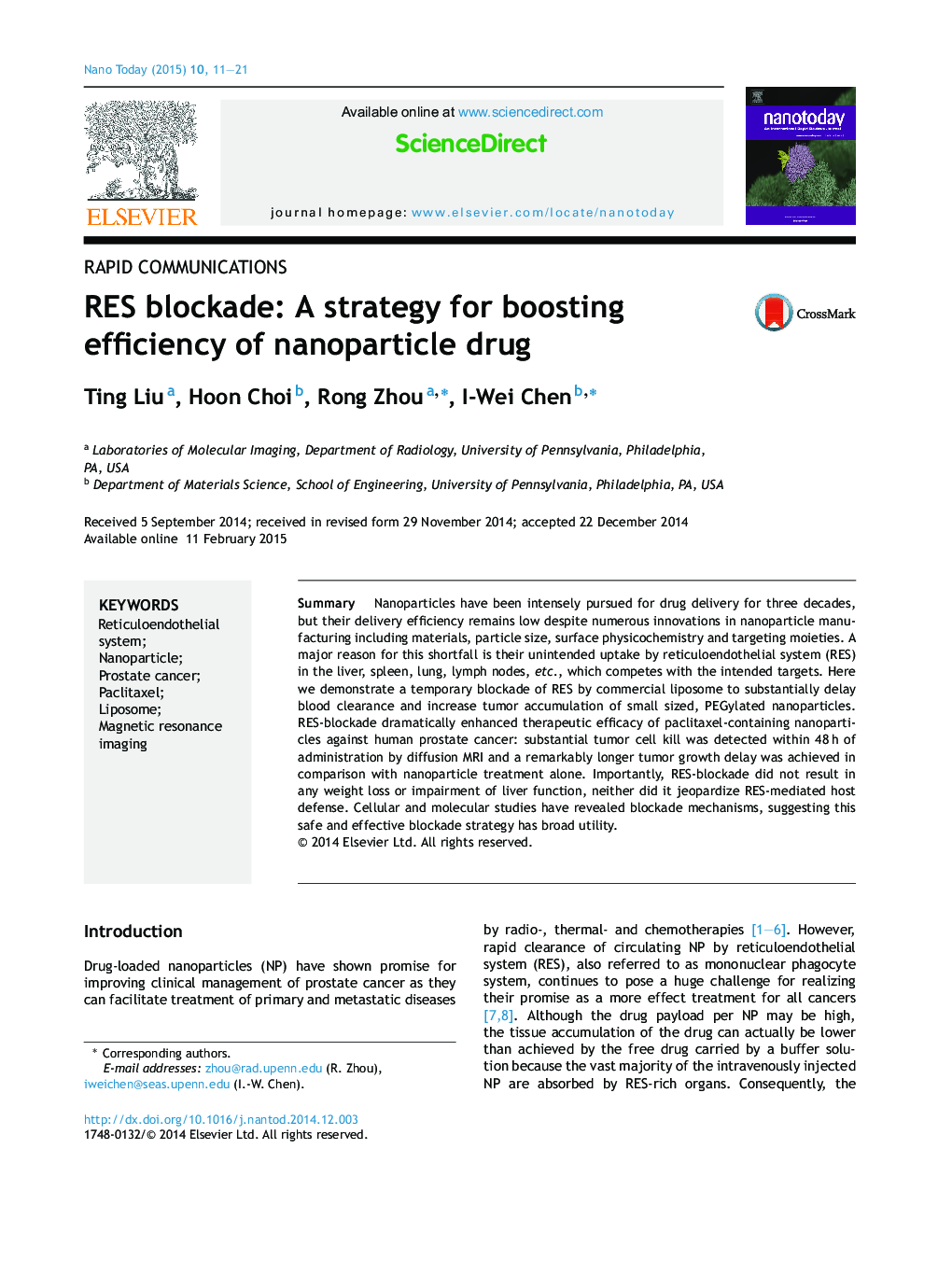| Article ID | Journal | Published Year | Pages | File Type |
|---|---|---|---|---|
| 32078 | Nano Today | 2015 | 11 Pages |
•Liposome-mediated RES-blockade increases tumor accumulation of small PEGylated NP.•RES-blockade dramatically enhances the therapeutic effect of paclitaxel-NP.•Nanoparticle drug combined with RES-blockade provides potent yet safe chemotherapy.•MRI enables non-invasive monitoring of RES-blockade and early therapeutic response.
SummaryNanoparticles have been intensely pursued for drug delivery for three decades, but their delivery efficiency remains low despite numerous innovations in nanoparticle manufacturing including materials, particle size, surface physicochemistry and targeting moieties. A major reason for this shortfall is their unintended uptake by reticuloendothelial system (RES) in the liver, spleen, lung, lymph nodes, etc., which competes with the intended targets. Here we demonstrate a temporary blockade of RES by commercial liposome to substantially delay blood clearance and increase tumor accumulation of small sized, PEGylated nanoparticles. RES-blockade dramatically enhanced therapeutic efficacy of paclitaxel-containing nanoparticles against human prostate cancer: substantial tumor cell kill was detected within 48 h of administration by diffusion MRI and a remarkably longer tumor growth delay was achieved in comparison with nanoparticle treatment alone. Importantly, RES-blockade did not result in any weight loss or impairment of liver function, neither did it jeopardize RES-mediated host defense. Cellular and molecular studies have revealed blockade mechanisms, suggesting this safe and effective blockade strategy has broad utility.
Graphical abstractFigure optionsDownload full-size imageDownload high-quality image (221 K)Download as PowerPoint slide
